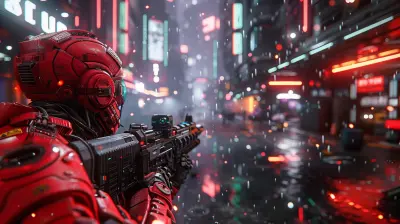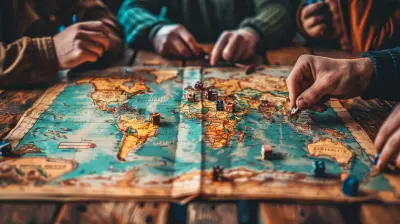From Adversaries to Allies: The Evolution of Rivals in Fantasy RPGs
17 June 2025
Fantasy RPGs have a magical way of pulling us into sprawling worlds teeming with dragons, sword fights, and—you guessed it—rivalries. Whether you're storming dungeons solo or assembling a ragtag crew of warriors, chances are you've come face-to-face with a foe who later joined your party. It’s one of the juiciest tropes in gaming, and let’s be honest—it never gets old!
Today, we're diving deep into the delightful dance of enemies-turned-allies in fantasy role-playing games. Why do developers keep circling back to this trope? Why does it hit us right in the feels every single time? And how has this narrative evolved over the years?
So grab your enchanted sword, pop on your most magical headset, and let’s venture into the evolution of rivals in RPGs—where foes become friends, and sometimes, even family.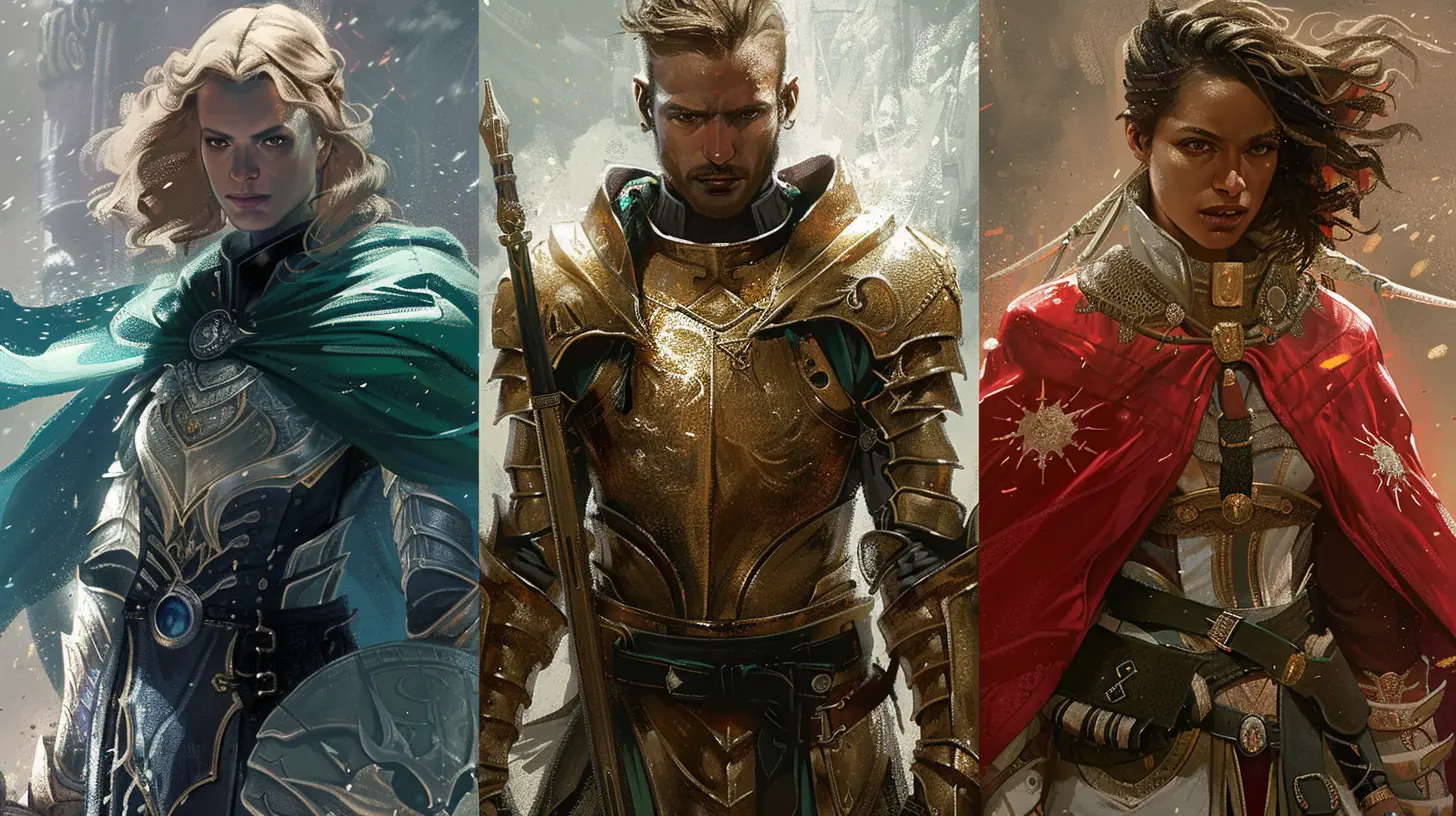
The Classic Rivalry: Where It All Began
Let’s rewind the clock—back to the golden age of pixelated graphics and MIDI audio. In the early days of RPGs, rival characters were mostly there to make your journey harder. Period. You’d usually meet them as mini-bosses, recurring thorns in your side, or characters who mocked your mission every step of the way.Think early Final Fantasy games, where antagonists were dark reflections of your own heroism. These characters didn’t necessarily have complex backgrounds. They were just “bad guys.” You hate them, beat them, move on.
But slowly, things started to shift.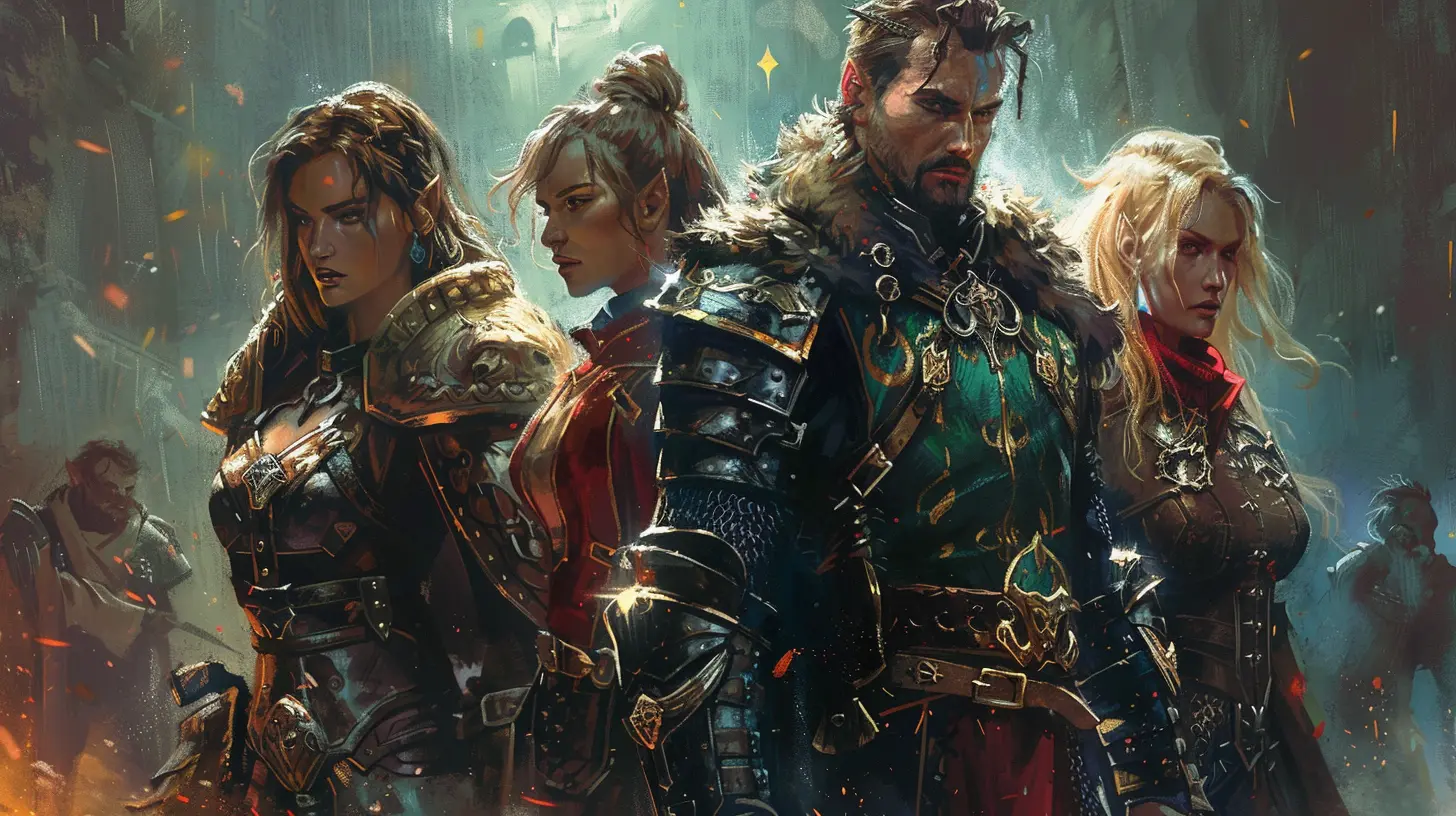
When Enemies Got a Backstory
Somewhere along the timeline—let's say mid to late '90s—RPGs got smarter. Developers started to realize that just having a villain for villainy's sake wasn’t cutting it anymore. Players wanted depth, moral ambiguity, and stories that made them feel something.Games like Final Fantasy VI and Chrono Trigger introduced characters that had heart-wrenching motivations. Suddenly, your enemy wasn’t just evil. He was misunderstood. Maybe he lost his family. Maybe he believed he was saving the world in his own twisted way.
That's when the tides changed. We stopped fighting “bad guys” and started fighting rivals—people just like us, but on the opposite side of the battlefield.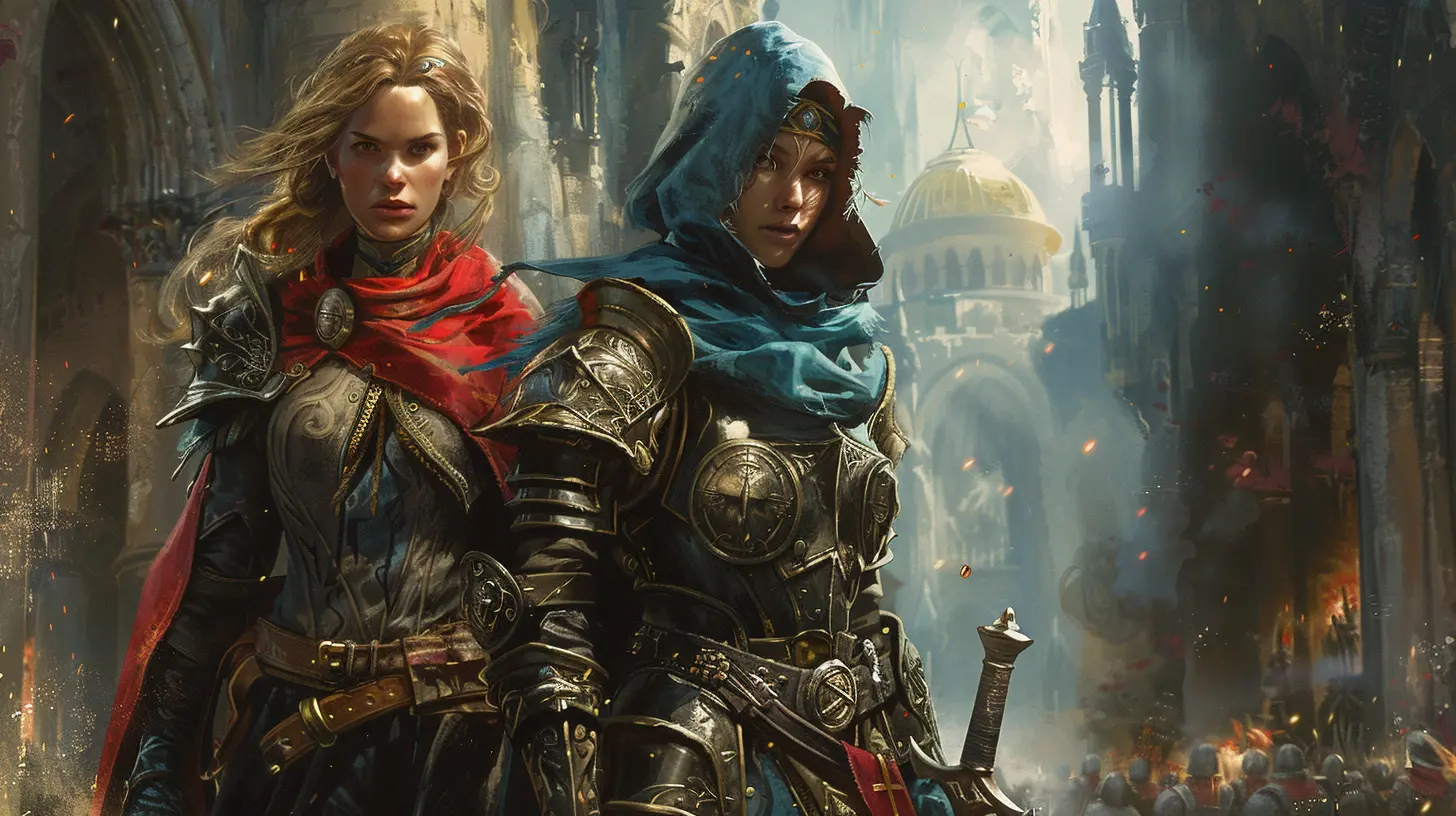
The Redemption Arc: From Foe to Friend
Honestly, who doesn’t love a good redemption arc? It’s like that moment in a buddy cop movie where the two leads finally realize they’re better together. In RPGs, this is the magic moment where your rival lays down their weapon, maybe after an epic boss fight, and decides to join your cause.Let’s take Suikoden II as a prime example. Without dropping too many spoilers, one of the most powerful and emotional parts of the game is the complex relationship between the protagonist and his childhood friend-turned-enemy. Watching that tension evolve into understanding is some top-tier storytelling. Bonus points if a teary reconciliation happens mid-battle.
This trope hits hard because we’ve all been there, right? That co-worker you couldn’t stand but later became your best buddy. Or the sibling rivalry that eventually turned into sibling support. It’s human nature to want resolution and unity, and RPGs reflect that beautifully.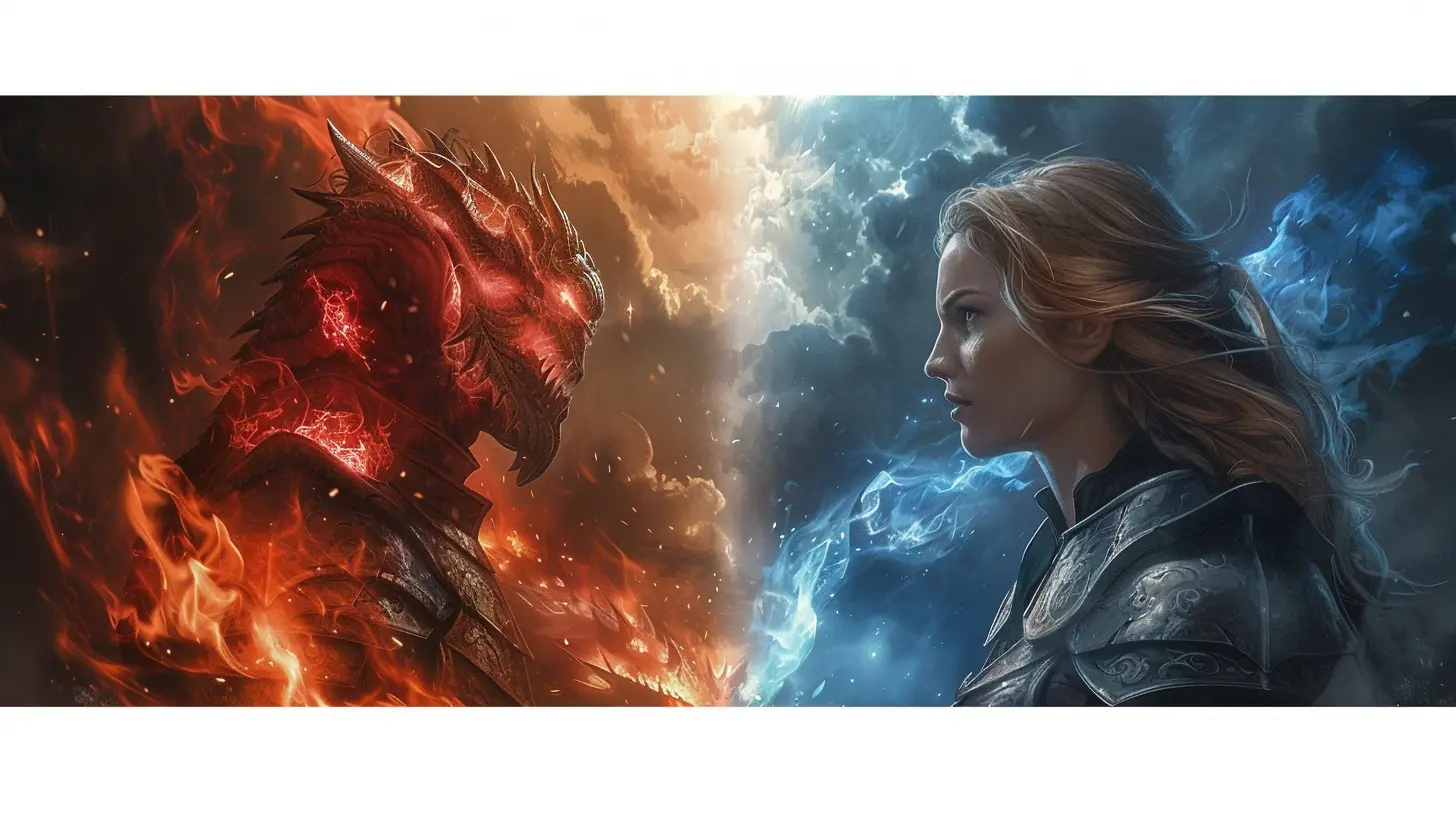
The “Frenemy” Phase: Allies with Tension
But hey, not all rival-to-ally transitions are rainbows and happy endings.Sometimes, your new “teammate” still holds a grudge. They might save your life in combat but throw shade during cutscenes. And honestly? That’s where the spice lives. Tension makes things more believable. You don’t have to fully trust them—yet. But that just makes the eventual camaraderie all the more satisfying.
Games like Dragon Age and The Witcher do this masterfully. They introduce characters that remain morally gray or even straight-up suspicious. You never truly know if they’ve got your back or if they're just waiting for the right moment to betray you. It keeps you on your toes and invests you in their arcs.
The Player’s Choice: You Decide Who Joins
Modern RPGs have taken things a step further by letting YOU decide whether a rival becomes an ally. Dialogue choices, quest outcomes, and moral decisions all influence whether your former enemy becomes your ride-or-die companion—or stays your bitterest rival.Take Mass Effect, for example. Your interactions with certain characters determine whether they stay loyal or walk away. The same goes for many games in The Elder Scrolls and Divinity: Original Sin series. It’s no longer about watching a cutscene unfold—it’s about you making choices that shape relationships.
This mechanic adds tons of replay value and makes every decision feel weighty. Are you gonna forgive the character who betrayed you earlier? Or are you gonna hold that grudge? The power is in your hands. Cue dramatic music.
Why We Love to See It: The Emotional Payoff
Here’s the thing—these arcs get us because they mirror real life. Nobody’s perfect. People mess up, clash, and come back together. Seeing that play out in a fantasy world just makes it all more magical.It’s not just character development—it’s relationship development. And when that rival finally fights by your side, it’s not just about the extra firepower. It’s about reconciliation, mutual respect, and shared purpose.
You’ve seen them at their worst. They've seen you at yours. And now? You’re unstoppable together.
Iconic Rivals Who Became Allies in Gaming History
Let’s give a standing ovation to some of the most iconic rival-to-ally characters we've come to love:1. Magus – Chrono Trigger
A dark sorcerer with one of the coldest entrances in RPG history. Turns out, he’s not just a villain… he’s a tragic figure with a mission of his own. Once he joins your party? Chef’s kiss.2. Rival – Pokémon Series
Okay, hear me out. Your rival may start out as an annoying jerk (lookin’ at you, Blue), but by the end, there’s a level of respect. And sometimes, they even pop back in to help out in later games. Growth!3. Jade – Tales of the Abyss
Starts off as aloof and shady, but ends up being one of the most reliable party members. His sarcasm never fades, but it becomes endearing.4. Alistair and Loghain – Dragon Age: Origins
Depending on your choices, you can bring a former nemesis into your ranks—at a cost. One of the most gut-wrenching decisions you’ll ever have to make in an RPG.5. Riku – Kingdom Hearts
From enemy to best friend to bonafide hero, Riku’s journey is a masterclass in character development and redemption. His friendship with Sora is practically the heart of the entire series.The Future of Rivalries in Fantasy RPGs
Looking ahead, it’s clear that the rival-to-ally arc isn’t going anywhere.If anything, it’s getting more nuanced. With advancements in AI, storytelling engines, and player-driven narratives, the next wave of RPGs will likely blur the lines between friend and foe even further.
Imagine rivals who change their stance based not just on big decisions, but subtle gestures—sharing loot, sparing their comrades, or even just choosing dialogue that shows empathy. The potential is endless.
How To Make It Even Better
Here’s our gamer wishlist for future rival-to-ally dynamics:- Branching Backstories: Let their past influence their alliance with you.
- Dynamic Trust Systems: Build trust over time or lose it—just like in real friendships.
- Consequences That Matter: Choosing to accept a former rival should change how the world sees you.
- Real Conflict Resolution: Not just a “sorry” after the fight—a full arc of atonement and healing.
Game devs, if you’re reading this—take notes. We’re ready for more messy, emotional, beautifully written rivalries.
Wrapping It Up: From Enemies to Endgame MVPs
At the end of the day, the rival-to-ally trope in fantasy RPGs is more than just a storytelling device—it's a reflection of growth, understanding, and the power of second chances. It reminds us that people can change, hearts can soften, and even the fiercest enemies can become family.So next time you square off against a brooding swordsman or an icy mage who’s clearly judging your every move—don’t write them off. They might just be your future bestie in battle.
Game on, hero. And remember—sometimes your greatest enemy is just a future friend waiting for a plot twist.
all images in this post were generated using AI tools
Category:
Fantasy RpgsAuthor:

Whitman Adams
Discussion
rate this article
2 comments
Bella Curry
The transition of rivals to allies in fantasy RPGs reflects a fundamental shift in storytelling, emphasizing growth, redemption, and the complexity of relationships. This evolution not only enriches character arcs but also mirrors our own capacity for understanding and collaboration beyond initial animosities.
June 21, 2025 at 4:29 AM

Whitman Adams
Thank you for your insightful comment! The shift from rivals to allies indeed deepens character development and reflects the nuanced nature of human relationships, enriching the narrative landscape of fantasy RPGs.
Peregrine McFee
Who knew that after all those intense battles, our fiercest foes could become our most loyal companions? This evolution from adversaries to allies in fantasy RPGs not only enhances gameplay but also deepens storytelling—proving friendship can be forged in fire!
June 17, 2025 at 3:26 AM

Whitman Adams
Thank you for your insightful comment! It’s fascinating how these character transformations enrich both gameplay and narrative, showcasing the power of redemption and friendship in RPGs.

